Table of Content
Cookies store your preferences but also track your activities, raising privacy concerns for 79% of people. This blog will reveal why cookie tracking is problematic and guide you in managing your online data.
What is Cookie Tracking?
Cookie tracking is when websites use small files called cookies to remember things about your online activity. These cookies store information like your preferences, login details, and which websites you visit. This helps websites give you a personalized experience, but it can also be used to track your behavior for advertising.
What Types of Data Do Cookies Track and Collect?
| User Preferences | Cookies store your settings and choices, such as language or theme preferences, to customize your browsing experience. |
| Login Information | They remember your login details so you don’t have to re-enter them each time you visit a website. |
| Browsing History | Cookies track the websites you visit and the time you spend on them to offer personalized content or advertisements. |
| Shopping Cart Contents | On e-commerce sites, cookies are used to monitor the items you add to your shopping cart. |
| Session Information | They can also store data about your current session, such as what you’re doing on a website, to keep everything running smoothly. |
Why is it Important to Stop Cookie Tracking?
Stopping cookie tracking is important for these reasons:
Privacy Protection
It helps protect your personal information from being collected and used without your permission.
Reduced Targeted Advertising
It helps reduce how much advertisers can follow your online activities and show you ads that are tailored just for you.
Minimized Data Sharing
It reduces the risk of your browsing information being shared with third parties or used for profiling.
Enhanced Security
It lowers the chances of your data being exposed in case of data breaches or misuse.
Control Over Online Experience
It gives you more control over what information is collected about you and how it is used.
How to Stop Cookie Tracking
To stop cookies from tracking you, follow these steps based on the browser you're using:
Disable Cookies
For Google Chrome
Step 1: Open Chrome browser. Click the three vertical dots (menu) in the top right corner and select "Settings."
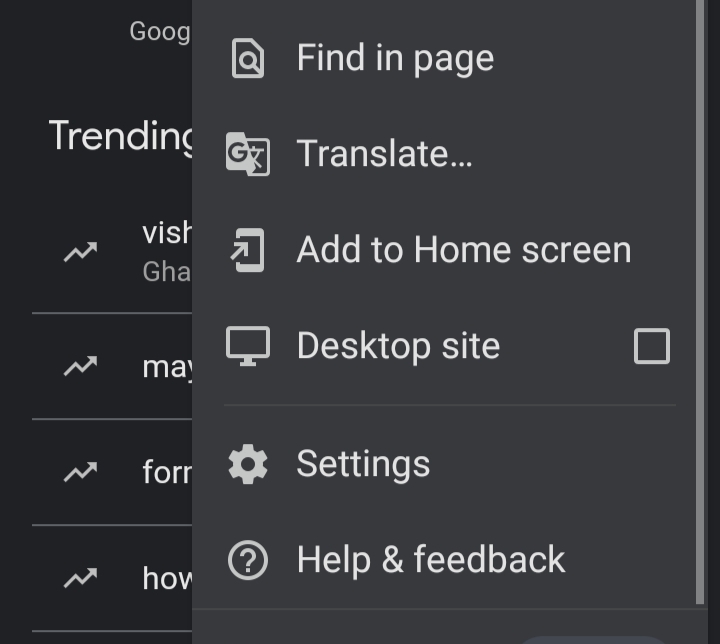
Step 2: On the left side menu, tap on the option "Privacy and security."
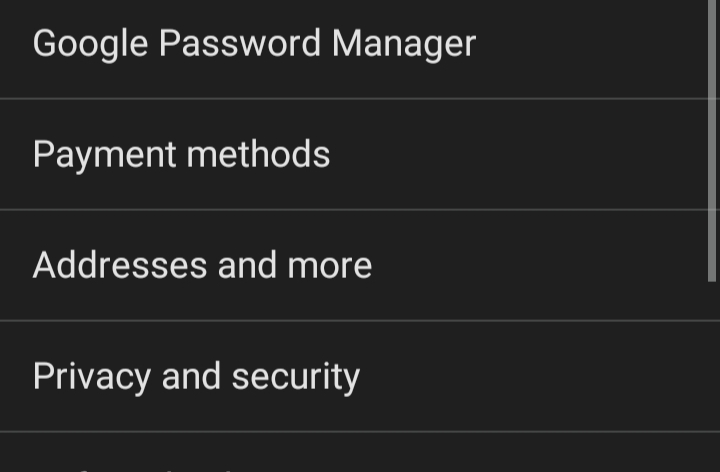
Step 3: Click on the "Third-party cookies" option.
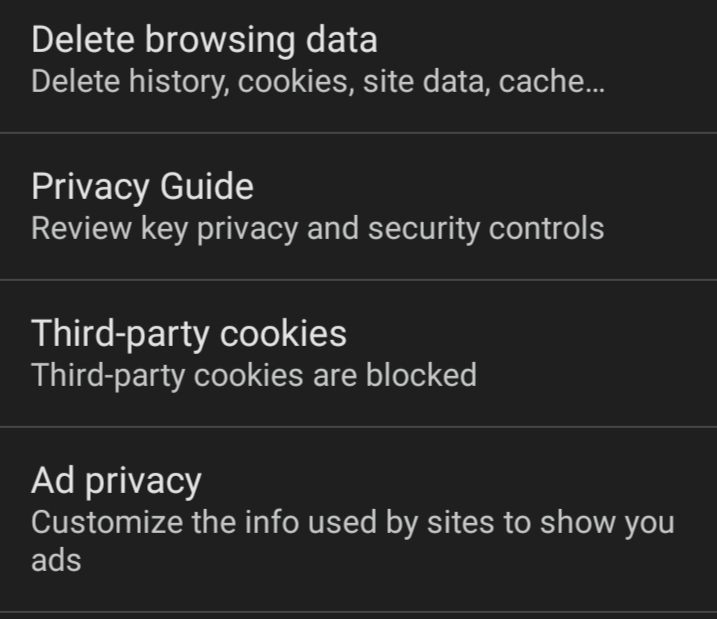
Step 4: Toggle on "Block third-party cookies”.
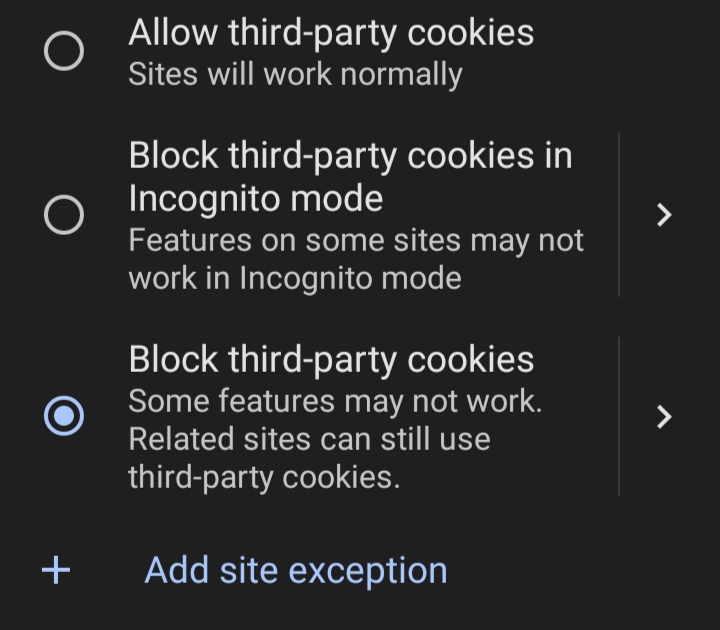
Mozilla Firefox
Step 1: Go to Firefox's settings and scroll down a little to the Privacy & Security section. Click on the "Enhanced Tracking Protection" option.
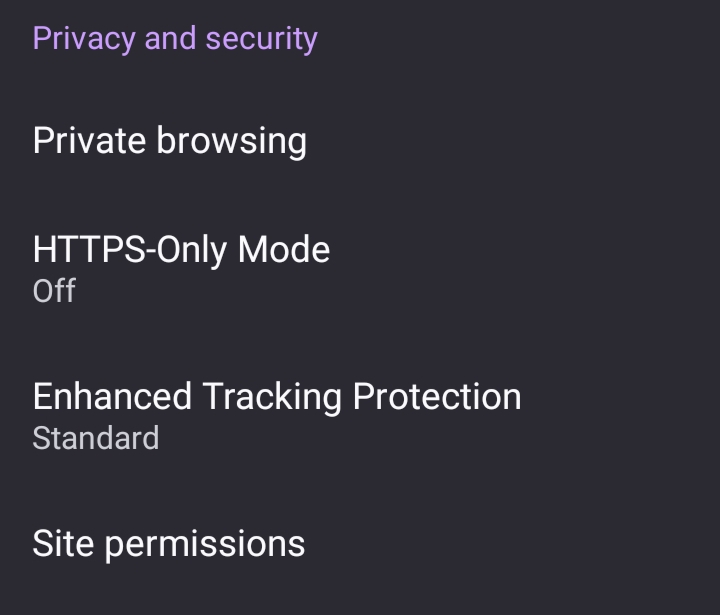
Step 2: Turn on the Strict option to prevent cookies from tracking your information.
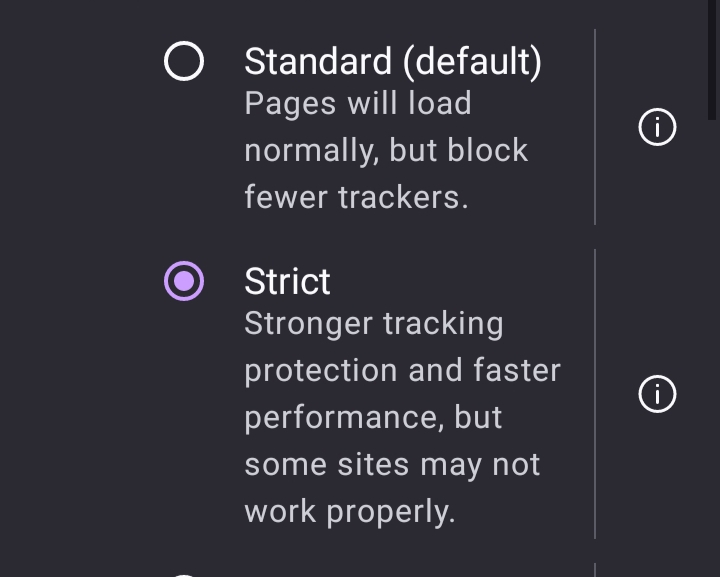
Microsoft Edge
Step 1: Open your Edge browser and click on the three horizontal dots in the bottom right corner.
Step 2: Go to Settings and select the “Privacy & Security” option.
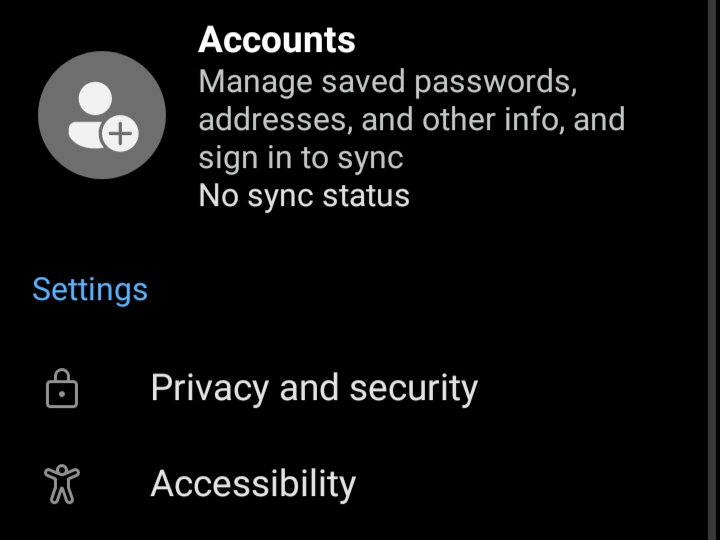
Step 2: Click on the “Tracking prevention” option.
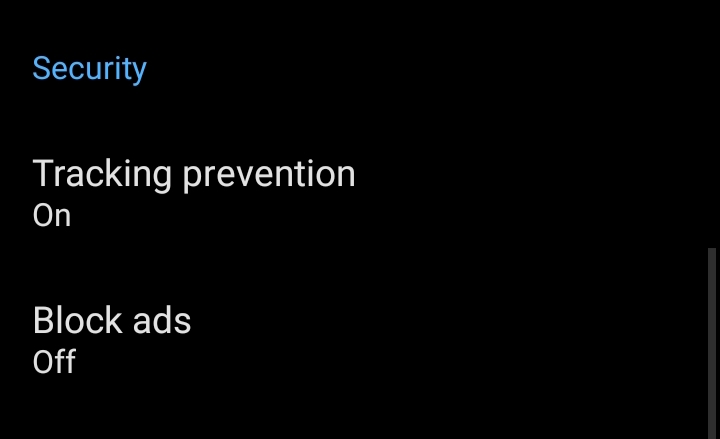
Step 3: Select the “Strict” option to block cookies from trackers and third parties.
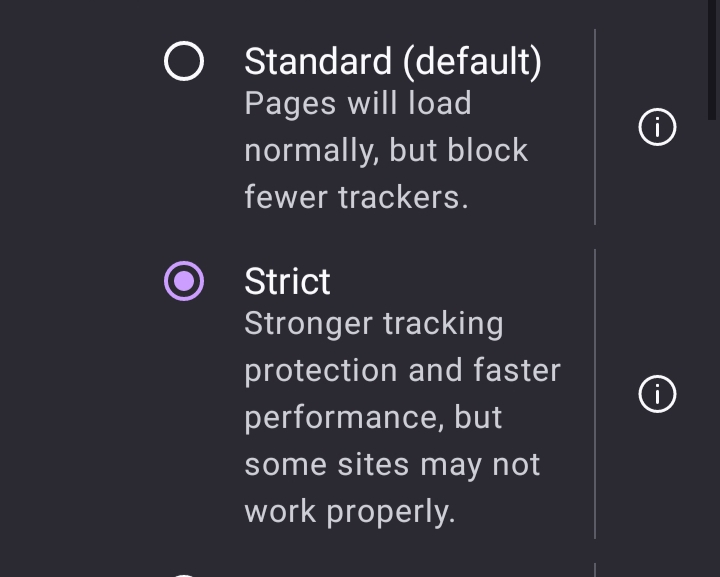
Safari iOS
Step 1: Navigate to your device's Settings app then scroll down and select “Safari”.

Step 2: In the Privacy & Security section, Toggle the switch for “Block All Cookies” to the on position.
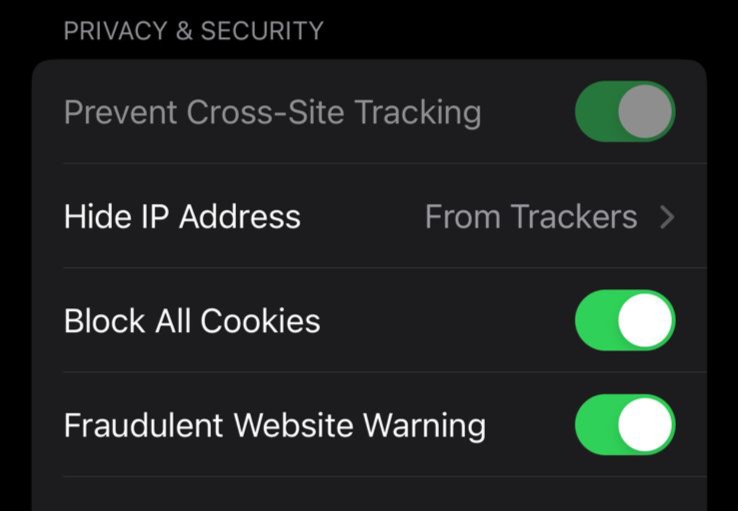
Regularly Clear Search and BrowsingHistory
Regularly clearing your browsing history can enhance your privacy by reducing the chances of being tracked by search engines. By deleting the records of websites you've visited and searches you've conducted, you make it more difficult for companies to monitor your online behavior and target you with ads.
Even after adjusting all these settings, it's unlikely that ads will stop tracking you entirely. For more protection, consider using PurePrivacy to keep your online activities private and shielded from unwanted ad tracking.
Keep Your Online Activities Safe from Cookie Tracking
PurePrivacy is a privacy app that keeps your online activities private. It blocks trackers that try to follow you around the web, so your information stays secure.
Block Trackers from Collecting Your Data
PurePrivacy stops known third-party trackers from collecting your information by blocking their domains.
Protect Your Data from Unwanted Sharing
Prevent unwanted data sharing with advertisers by stopping trackers from communicating with their websites.
Reduce the Risk of Targeted Ads
Block ads that use your data for personalized targeting, keeping your browsing experience private.
Protect Your Identity with Dark Web Monitoring
PurePrivacy's dark web monitoring scans for exposed personal data and alerts you to protect your identity from potential threats.
Frequently Asked Questions (FAQs)
-
Why is cookie tracking a privacy concern?

Cookie tracking collects lots of information about what you do online, which can then be used to show you ads or sell to others, threatening your privacy. Pureprivacy’s tools help stop this tracking to keep your data safe.
-
Can blocking cookies affect my browsing experience?

Yes, Blocking cookies might make some websites forget your settings or logins. PurePrivacy blocks only the trackers, so your settings and logins stay the same.
-
What are third-party cookies, and why should I block them?

To block third-party cookies, adjust your browser settings to block them and use PurePrivacy. It keeps trackers away from following you across different websites.
Wrapping Up
Cookie tracking collects and shares your data for targeted ads, posing privacy risks. PurePrivacy helps secure your personal information, giving you control over your online privacy.






